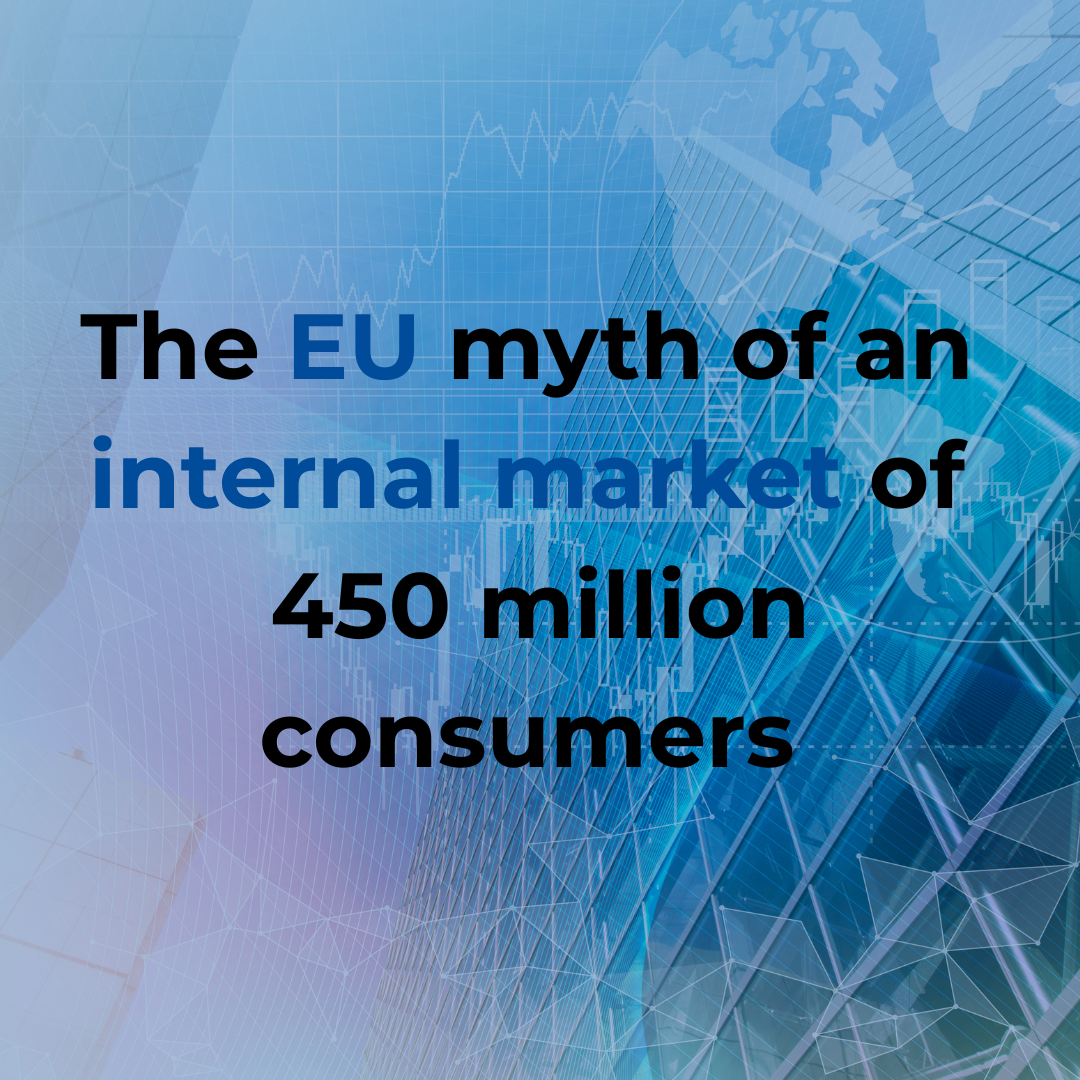This, of course, ignores the fundamental principle of the first marketing lesson in business school: market segmentation!
Who can still come to the conclusion that there is a common consumer market in the EU? Take a look at the following place-based evidence.
A) Purchasing power differential: the regional disparities in the EU range from €90,300 per inhabitant in Luxembourg, a country with a population of 666,000, to less than €24,300 per inhabitant in Bulgaria, a country with a population of 6,500,000. In the US, the gap is much smaller, at 104,000 USD in New York State against 47,000 USD in Mississippi.
B) Hourly wages range from €9 in Bulgaria to €54 in Luxembourg. In other words, if an EU startup were to launch a deep tech personal health AI device on the market tomorrow, priced at €2,500, for example. Luxembourgish citizens would have to work 46 hours (less than two weeks) to afford it, whereas a Bulgarian worker would have to work 278 hours (more than seven weeks).
C) Language. There are official languages, meaning that all the 'how to use it' papers have to be translated into not only a common language, but also legal vocabulary, in order to comply with consumer protection rights. Also, consider the different names given to the same products by multinationals. There is no EU market for most cultural goods, such as books, theatre performances, news magazines, TV shows and quizzes.
D) Culture. Would the chefs at the Greek restaurant agree to make his salad with Camembert and his Savoyarde fondue with a mixture of feta and manchego?
E) Nationalism and economic patriotism. Anyone who visits a supermarket in France will have seen lots of packaging stating that the bread was made using only French flour, or that the furniture was made using French wood. Recently, politicians and opinion makers criticised the Belgian railway company's decision to order new equipment from a Spanish firm, despite the fact that a French competitor has two plants in Belgium. If the French company had won the contract, it would have guaranteed thousands of working hours for local people, bearing in mind that a large proportion of the purchase costs are funded by citizens' taxes, not to mention the unemployment benefits that the state would have to provide to those who would be made redundant if the French company did not win the contract.
F) A welfare system that impacts state compensation for unemployed or retired citizens.
G) The urban-rural divide in terms of income and accessibility to services and knowledge.
H) Entrepreneurial born EU mindset and capability. How many Eastern European products do you find in a Western European supermarkets? In Belgium some Bulgarians or Romanian some tasty wine. Citizens across Portugal, Sweden, or Sicily might drive Škoda cars (owned by Volkswagen) or Dacia vehicles (owned by Renault), or have previously used Skype before its decline—but beyond these well-known examples, what other products from Central and Eastern Europe have successfully penetrated Western European markets?"
For all the abovementioned reasons, it seems to be more difficult for startups and SMEs to scale uniformly across Europe compared to, for example, the US.
